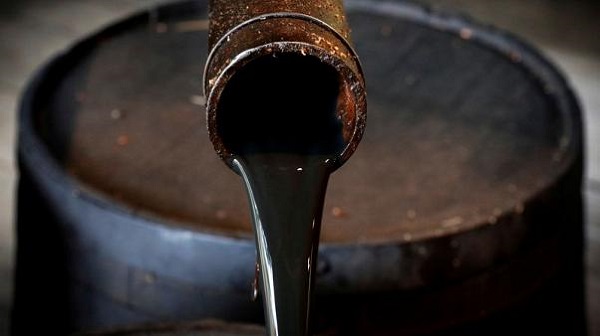Oil prices jumped 3% on Wednesday after U.S. crude inventories shrank more than expected and as major producers evacuated rigs in the Gulf of Mexico ahead of an expected storm.
Brent crude futures LCOc1 were up $1.92, or 3%, to $66.08 a barrel by 10:49 a.m. EDT (1449 GMT).U.S. West Texas Intermediate (WTI) crude futures CLc1 climbed $1.75, also 3%, to $59.58 a barrel.
U.S. crude stocks fell 9.5 million barrels in the week to July 5, more than triple the 3.1 million barrel draw analysts had expected, as refineries ramped up output, the Energy Information Administration (EIA) said.
The report followed data from the American Petroleum Institute (API), an industry group, on Tuesday that had boosted oil prices earlier.
“Its all about this big API and now EIA storage report that have these markets bulled up this time and then you throw the storm on top of that,” said Bob Yawger, Mizuho director of futures in New York. “The storm looks like it could be the real deal and end up shutting in Gulf Coast offshore production.”
Major oil firms began evacuating and halting production in the Gulf of Mexico after weather forecasts warned that a tropical disturbance might become a storm on Wednesday or Thursday.
Chevron Corp, Royal Dutch Shell, BP and BHP Group were in the process of removing staff from 15 offshore platforms. Exxon Mobil said it was “closely monitoring” the disturbance to determine if its facilities might be affected.
The Gulf of Mexico is home to 17% of U.S. crude oil output which stands at around 12 million barrels per day (bpd).
The U.S. and global benchmarks have gained this year as the Organization of the Petroleum Exporting Countries (OPEC) and big producers such as Russia have curbed output to bolster prices.
The alliance, known as OPEC+, agreed last week to extend their supply-cutting deal until March 2020.
Tensions around Iran’s nuclear program and recent incidents involving oil tankers in the Gulf have also supported prices.
“The ongoing geopolitical tensions between the United States and Iran continue to add a still unquantifiable level of support,” said Saxo Bank commodity strategist Ole Hansen.
A U.S. general said Washington hoped to enlist allies over the next two weeks or so in a military coalition to safeguard strategic waters off Iran and Yemen, where the United States blames Iran and Iran-aligned fighters for attacks.
Iran has long threatened to close the Strait of Hormuz, through which almost a fifth of the world’s oil passes, if it was unable to export its oil due to U.S. sanctions.












